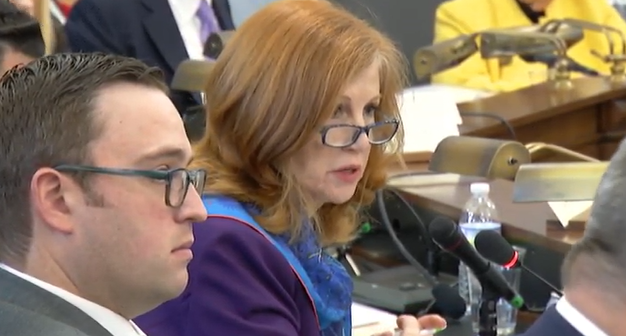In a recent development, New Jersey Governor Phil Murphy’s plan for transportation infrastructure has come under scrutiny from various quarters, including criticism from State Senate President Steve Sweeney and Assembly Speaker Craig Coughlin. However, the latest critique comes from a surprising source – New Jersey Transit (NJ Transit) CEO Kevin Corbett.
Corbett’s criticism stems from the potential impact of Murphy’s plan on affordable public transit in the state. The plan, which aims to improve transportation infrastructure and reduce congestion, includes a proposal to increase the state’s gas tax by 22.5 cents per gallon. While this increase would provide much-needed funding for road and bridge repairs, Corbett argues that it could have unintended consequences for NJ Transit riders.
One of the main concerns raised by Corbett is the potential for fare hikes to offset the increased costs of fuel. With NJ Transit already facing financial challenges and struggling to maintain affordable fares, any additional burden on commuters could have a detrimental impact on ridership. Corbett emphasizes that making public transit less affordable would discourage people from using it, leading to increased congestion on roads and highways.
Furthermore, Corbett highlights the importance of maintaining a balance between road infrastructure improvements and investments in public transit. While road repairs are undoubtedly necessary, neglecting public transit could exacerbate congestion issues in the long run. Corbett argues that a comprehensive transportation plan should include measures to enhance both road infrastructure and public transit systems to ensure a sustainable and efficient transportation network.
Another concern raised by Corbett is the potential impact on low-income communities. Affordable public transit plays a crucial role in providing mobility options for individuals who cannot afford to own a car or rely on expensive private transportation. Any increase in fares could disproportionately affect these communities, limiting their access to job opportunities, education, and essential services.
Corbett suggests that alternative funding sources should be explored to avoid placing the burden solely on NJ Transit riders. He proposes considering options such as a congestion pricing system, where drivers pay a fee to enter certain congested areas, or seeking federal funding to support public transit initiatives. By diversifying the funding sources, the state can ensure that the costs of transportation improvements are shared more equitably.
In response to Corbett’s criticism, Governor Murphy’s office has stated that the proposed gas tax increase is necessary to address the state’s crumbling infrastructure and improve road safety. They argue that the benefits of these improvements will ultimately outweigh any potential negative impacts on public transit.
As the debate continues, it is clear that finding a balance between road infrastructure improvements and affordable public transit is crucial for New Jersey’s transportation future. The concerns raised by NJ Transit CEO Kevin Corbett highlight the need for a comprehensive and inclusive approach that takes into account the needs of all commuters, especially those who rely on affordable public transit options. It remains to be seen how these concerns will be addressed and whether alternative funding sources will be explored to mitigate the potential impact on NJ Transit riders.




